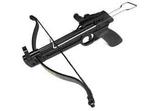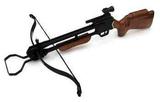Independent 4 October 2008

Peter Mandelson was sensationally appointed to the Cabinet for a third time yesterday as Gordon Brown launched an attempt to tackle the political and economic crisis that threatens to engulf his premiership. In an astonishing comeback, which marks the end of his 14-year feud with Mr Brown, the former EU trade commissioner will take up the role of Business Secretary – the job he held 10 years ago before his first resignation.
Some Brown allies were appalled by the Mandelson recall. Ed Balls, the Schools Secretary, who was kept in the dark, is said to have tried to block it. The Prime Minister said the reshuffle reflected the fact that a "new era needs new ways of governing", and revealed a series of measures he believes will protect Britain from the worst of the financial crisis.
They include:
*The launch of a new cabinet committee on economics, a financial equivalent of the Cobra civil emergencies committee.
*An increase from Tuesday in the maximum payout to savers caught up in a banking failure from £35,000 to £50,000.
*A policy U-turn from the Bank of England, which will see the central bank lend on much more relaxed terms to cash-strapped High Street banks. In addition, the Bank is now widely expected to cut interest rates next week.
Mr Mandelson will be joined in Government by two other former cabinet ministers: Margaret Beckett, who accepted a job as Housing minister, and Nick Brown, who becomes Chief Whip.
Mr Mandelson's appointment was also seen as an attempt to bolster Mr Brown's position by installing a prominent Blairite to a key post. Brown allies hope this will finally heal the long-standing Blair-Brown fault-line.
Explaining his decision, Mr Brown said: "Serious people are needed for serious times." He said Mr Mandelson – who was nicknamed the Prince of Darkness by Private Eye – had done a "brilliant job" as the EU's trade commissioner and his "expertise and experience" would help the Government.
Mr Mandelson joked that his comeback was "third time lucky". He said of Mr Brown: "Of course we have had our ups and downs ... I am very proud to have been invited to serve in his Government. It's not what I was seeking and it's certainly not what I was expecting."
Mr Mandelson resigned as Trade and Industry Secretary in 1988 after it was revealed he had accepted a £373,000 loan from Geoffrey Robinson, a Treasury minister, to buy a house. He returned as Northern Ireland Secretary but was forced to quit in 2001 amid allegations of misconduct over a passport application for the Hinduja brothers businessmen. He was later cleared of any wrongdoing.
Downing Street said the overriding aim of the reshuffle was to protect the economy. Mr Brown warned the "global economy will never be the same again" as he announced the creation of a National Economic Council – dubbed the "War Cabinet" – to spearhead a co-ordinated response to the crisis.
Mr Mandelson's recall divided Mr Brown's backbench critics. Graham Stringer, the first Labour MP to call on the Prime Minister to step down, said: "Bringing back Peter Mandelson ... does bring back more weight and balance to the Cabinet." But Peter Kilfoyle, the former defence minister, said Mr Mandelson's recall was a "thoroughly retrograde step which will do nothing to promote unity within the Labour Party".
The return of one of New Labour's architects coincides with a shake-up of the much-criticised Downing Street operation. After a turbulent nine months as strategy chief, Stephen Carter steps down to become minister for Communications, Technology and Broadcasting.
Damian McBride, Mr Brown's political spin-doctor, moves to a backroom role as a strategist after complaints from cabinet ministers.
Mr Mandelson succeeds the Blairite John Hutton, who becomes Defence Secretary. He replaces Des Browne, a Brown ally, who had previously combined the jobs of Defence Secretary and Scottish Secretary
Jim Murphy takes the job of Scottish Secretary, with the task of rebuilding Labour's battered fortunes north of the border. Ed Miliband moves from the Cabinet Office to head a new Whitehall department as Secretary of State for Energy and Climate Change.
Geoff Hoon, son of a rail worker, moves from Chief Whip to Transport Secretary. Mr Hoon is replaced as Chief Whip by Nick Brown. Liam Byrne is promoted from Immigration minister to Cabinet Office minister.
Brown’s new Cabinet: The main changes
*Peter Mandelson joins Cabinet for the third time as Business Secretary.
*Arch-Blairite John Hutton moves from Business to Defence Secretary.
*Geoff Hoon switches from Chief Whip to Transport Secretary.
*Ed Miliband gets a major promotion, from Cabinet Office minister to Energy and Climate Change Secretary
*Baroness Royall of Blaisdon, moves from Lords Chief Whip to Leader of the Lords.
*Nick Brown, a close Brown ally, steps up from Deputy Chief Whip to Chief Whip.
*Liam Byrne, after a successful spell as Immigration minister, is now Cabinet Office minister (attending Cabinet).
*Margaret Beckett, below – who left at the last reshuffle after a decade in the Cabinet – returns as Housing minister (attending Cabinet).
*Tony McNulty moves up from Policing minister to Employment minister and minister for London (attending Cabinet).
*Lord Drayson, who left Government to drive at Le Mans, returns as Science minister (attending Cabinet).
*Caroline Flint moves from Housing minister to Europe minister and will attend the Cabinet when needed.
*Des Browne steps down as Defence Secretary.
*Ruth Kelly steps down as Transport Secretary and will quit as an MP at the next election.
*Baroness Ashton of Upholland leaves as Leader of Lords to become a European Commissioner.
*Paul Myners, ex-chair of the Guardian Media Group, is now City minister.
*Baroness Vadera is promoted to minister for Economic Competitiveness and Small Business.
*Jim Murphy joins the Cabinet as Scottish Secretary.
*Stephen Carter, the Chief of Strategy at Downing Street, is appointed Minister for Communications.
*Ex-CBI chief Lord Jones of Birmingham steps down as Minister for Trade and Invest-ment.






















No comments:
Post a Comment